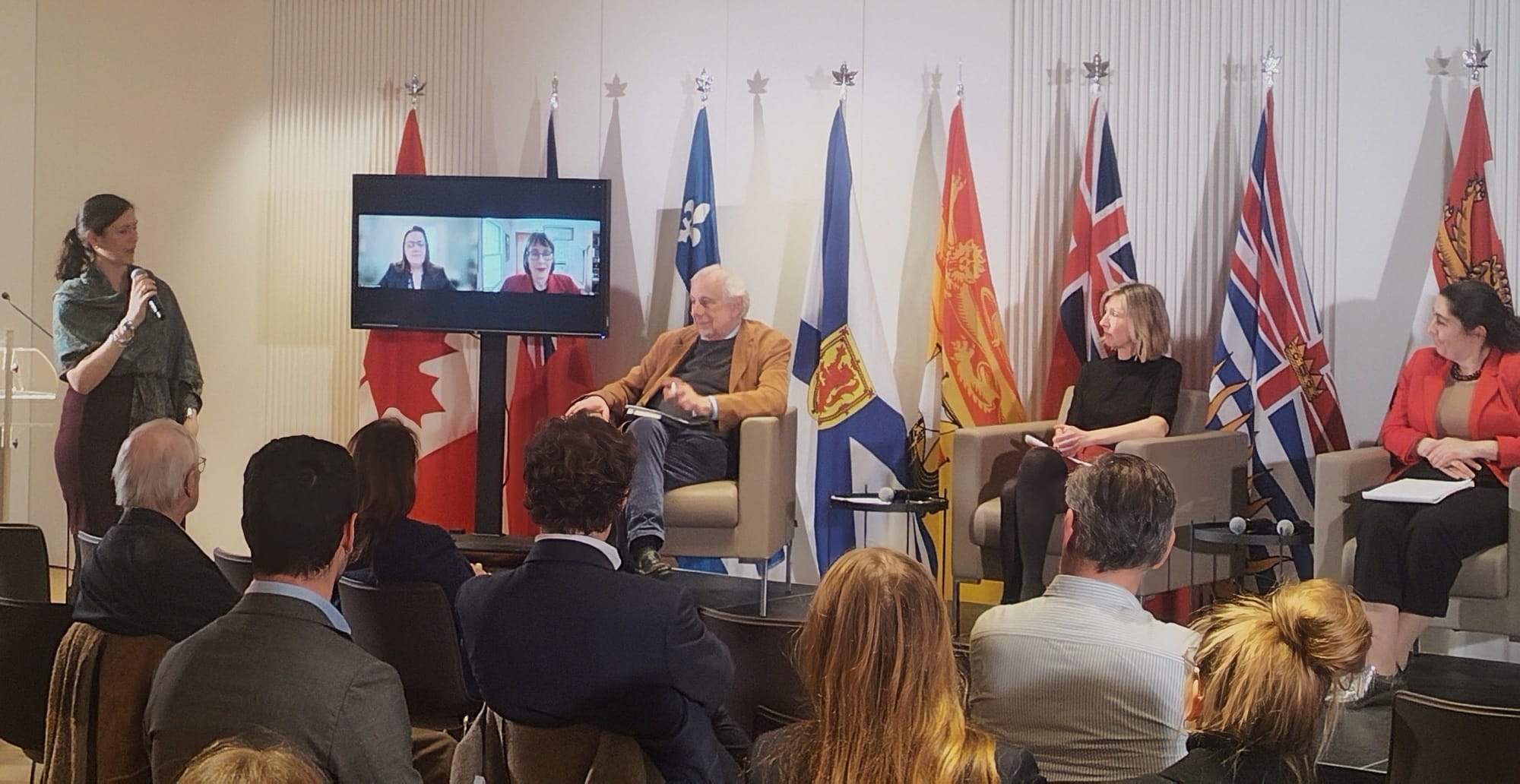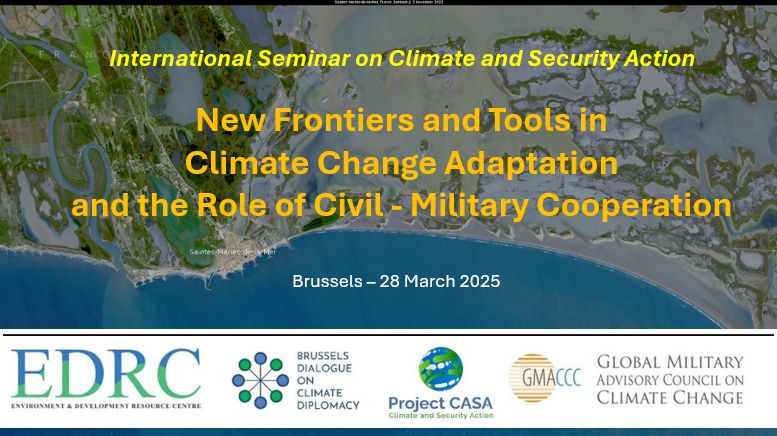New Frontiers and Tools in Climate Change Adaptation

The 17th meeting of the Brussels Dialogue on Climate Diplomacy (BDCD) was held at the Mission of Canada to the EU in Brussels and on-line on Friday, 28 March 2025 and was entitled "New Frontiers and Tools in Climate Change Adaptation and the Role of Civil - Military Cooperation".

Speakers at this international seminar on climate and security action from the Belgian Centre for Risk Assessment of Climate Change (CeRAC), the NATO Climate Change and Security Centre of Excellence, the Euro-Atlantic Disaster Response Coordination Centre, the Centre for Future Generations, the European Commission, and the Global Military Advisory Council on Climate Change made presentations on:
- Strengthening Climate and Environmental Resilience
- How prepared is Europe for Rapidly Growing Climate Risks?
- The impact of Climate Change on NATO’s Operations, Resilience and Civil Preparedness
- Advancing Understanding and Action on Climate-related Security Challenges
- Supporting National Authorities in Civil Emergencies
- Global Trends in Emerging Technologies, Climate Change and Geopolitics
The event also featured a presentation on the forthcoming report of the project on Climate and Security Action through Civil-Military Cooperation in Climate-Related Emergencies (Project CASA).
The report will examine the extent to which several NATO and selected non-NATO countries have engaged their national militaries in responding to climate-related emergencies and provide actionable data for decision makers, stakeholders, and the wider public on how militaries are working together with civilian emergency management agencies within countries and across international borders.
>>> For more infomation and the full programme go to the event page here >>>
Event banner modified Image credit: European Union, Copernicus Sentinel-2 imagery
This image, acquired by one of the Sentinel-2 satellites on 5 November 2022, shows the town of Saintes-Marie-de-la-Mer and the surrounding wetlands, which are threatened by the rising water level. The Copernicus Sentinel-2 satellites deliver free and open data that can be used to monitor drought impact.
Attribution: Contains modified Copernicus Sentinel data 2022 via Wikimedia Commons. Original Source: Climate Change and drought threaten Camargue’s wetlands The use of Copernicus Sentinel Data is regulated under EU law (Commission Delegated Regulation (EU) No 1159/2013 and Regulation (EU) No 377/2014).